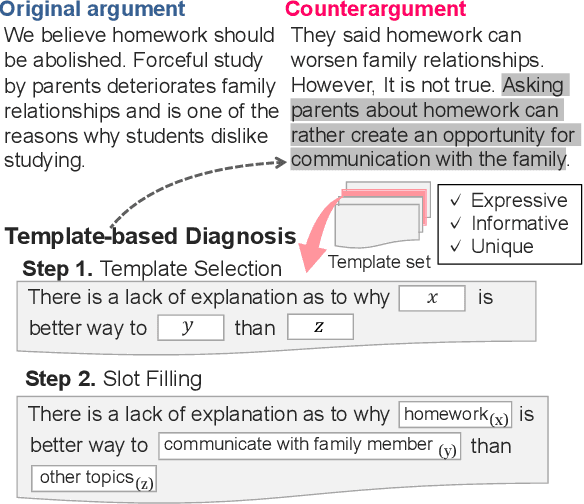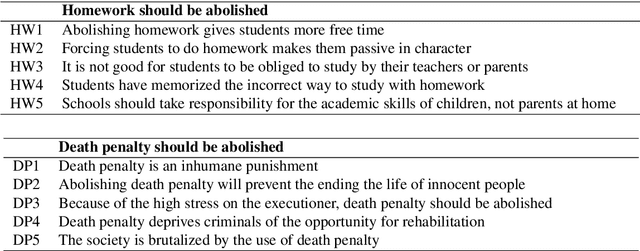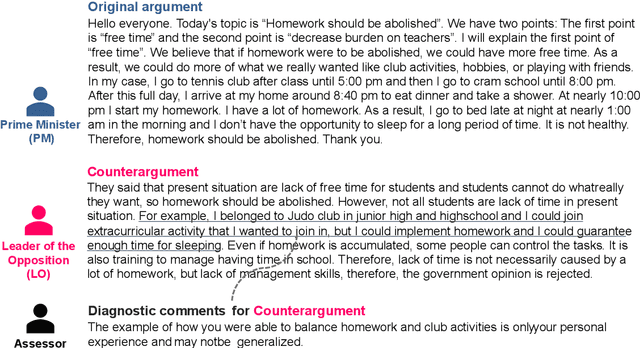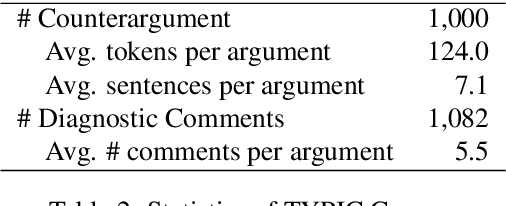TYPIC: A Corpus of Template-Based Diagnostic Comments on Argumentation
Paper and Code
Jan 18, 2022



Providing feedback on the argumentation of learner is essential for development of critical thinking skills, but it takes a lot of time and effort. To reduce the burden on teachers, we aim to automate a process of giving feedback, especially giving diagnostic comments which point out the weaknesses inherent in the argumentation. It is advisable to give specific diagnostic comments so that learners can recognize the diagnosis without misunderstanding. However, it is not obvious how the task of providing specific diagnostic comments should be formulated. We present a formulation of the task as template selection and slot filling to make an automatic evaluation easier and the behavior of the model more tractable. The key to the formulation is the possibility of creating a template set that is sufficient for practical use. In this paper, we define three criteria that a template set should satisfy: expressiveness, informativeness, and uniqueness, and verify the feasibility to create a template set that satisfies these criteria as a first trial. We will show that it is feasible through an annotation study that converts diagnostic comments given in text into a template format. The corpus used in the annotation study is publicly available.
 Add to Chrome
Add to Chrome Add to Firefox
Add to Firefox Add to Edge
Add to Edge